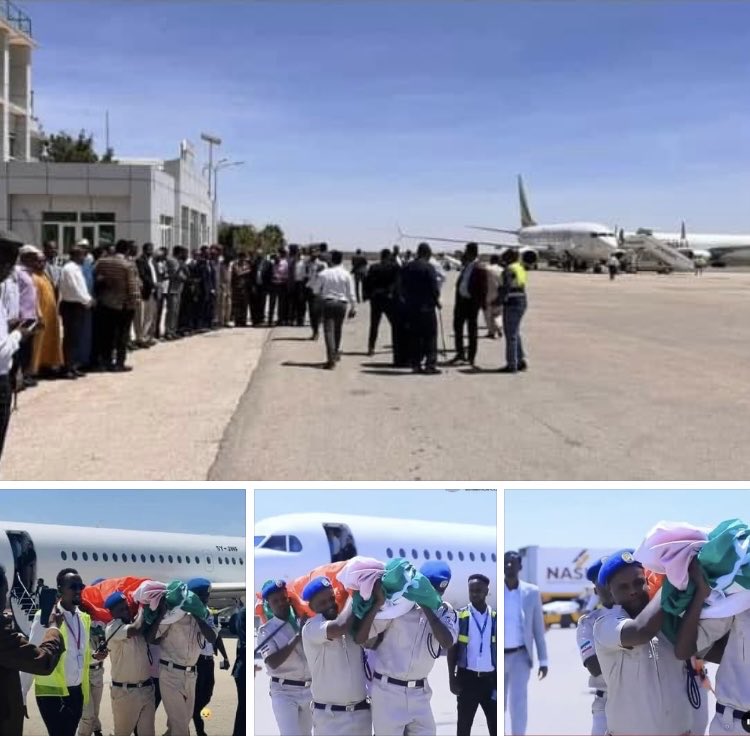In recent weeks, the streets of Mogadishu, Somalia have witnessed a distressing increase in violence directed at innocent members of Somaliland’s Isaaq community. These violent executions have shocked the Republic of Somaliland. These sad occurrences illustrate not only the frightening escalation in violence against Somalilanders living in Somalia, but also the critical need for justice and responsibility. Accusations point to the involvement of Somalia’s National Security personnel in these heinous acts, exacerbating the complexity and urgency of an already grim situation.
Among the fatalities are people of great height and promise, whose lives were cut short by senseless acts of violence. One such person was Abdinasir Musa Dahable, a bright Chevening alumnus and dedicated member of the International Civil Aviation Organization (ICAO) staff at Mogadishu Airport. His dead body was discovered under troubling circumstances, with the telltale signs of a violent murder.
Six of Abdinasir’s colleagues from the Republic of Somaliland have been arbitrarily detained by the Somalia government, aggravating an already severe situation. Allegations that Somalia National Security was involved in these horrible killings exacerbate the sense of injustice and urgency surrounding these tragedies.
Similarly, Ahmed, a former Member of Parliament known for his peaceful demeanor and unwavering commitment to public service, met a tragic end in Mogadishu, becoming the second victim in recent days to be targeted solely because of his Somaliland origin.
Somaliland, and beyond, has been shaken by the untimely death of Abdi Hassan Abraar, another ICAO staff member in Garowe, Somalia. His passing, likely due to poisoning, adds to the already prevailing sadness. This unfortunate event also brings to light concerns about the safety and security of Somaliland nationals, especially those employed in sensitive industries. This is particularly significant amidst the ongoing airspace control conflict between Somaliland and Somalia.
In addition to these tragic losses, it’s crucial to acknowledge the broader context of violence against the Isaaq community. The victims of these recent atrocities are not just random individuals but are the descendants of those who suffered during the Isaaq Genocide committed by the Somalia government, resulting in the loss of over 500,000 lives.

In response to these atrocities, the Somaliland government has launched thorough investigations into the brutal murders, uncovering shocking details that demand immediate international attention. The autopsy report for one of the victims describes grisly details of serious injuries, including shattered eyes and genitals, as well as death by strangling. The bodies of additional victims were not properly kept, raising concerns about attempts to conceal proof of their injuries.
The findings underscore the urgent need for intervention from organizations such as UN Genocide Prevention and other human rights groups, to address the extrajudicial nature of these attacks and ensure that justice is served for the victims and their grieving families.
The continued targeting of individuals from Somaliland by the Somalia government and its security agents is not only reprehensible but also a blatant violation of human rights. As a community, we extend our deepest condolences to the families and loved ones of the victims, standing in solidarity with them during this difficult time.
However, condolences alone are not enough. We demand justice for the lives lost and swift action to hold the perpetrators accountable for their heinous actions. It is only through collective efforts, both locally and internationally, that we can bring closure to the grieving families and prevent further tragedies from occurring.
Together, let us raise our voices against injustice and work tirelessly towards a future where all individuals, regardless of their origin or background, can live in peace and security. The time for action is now.